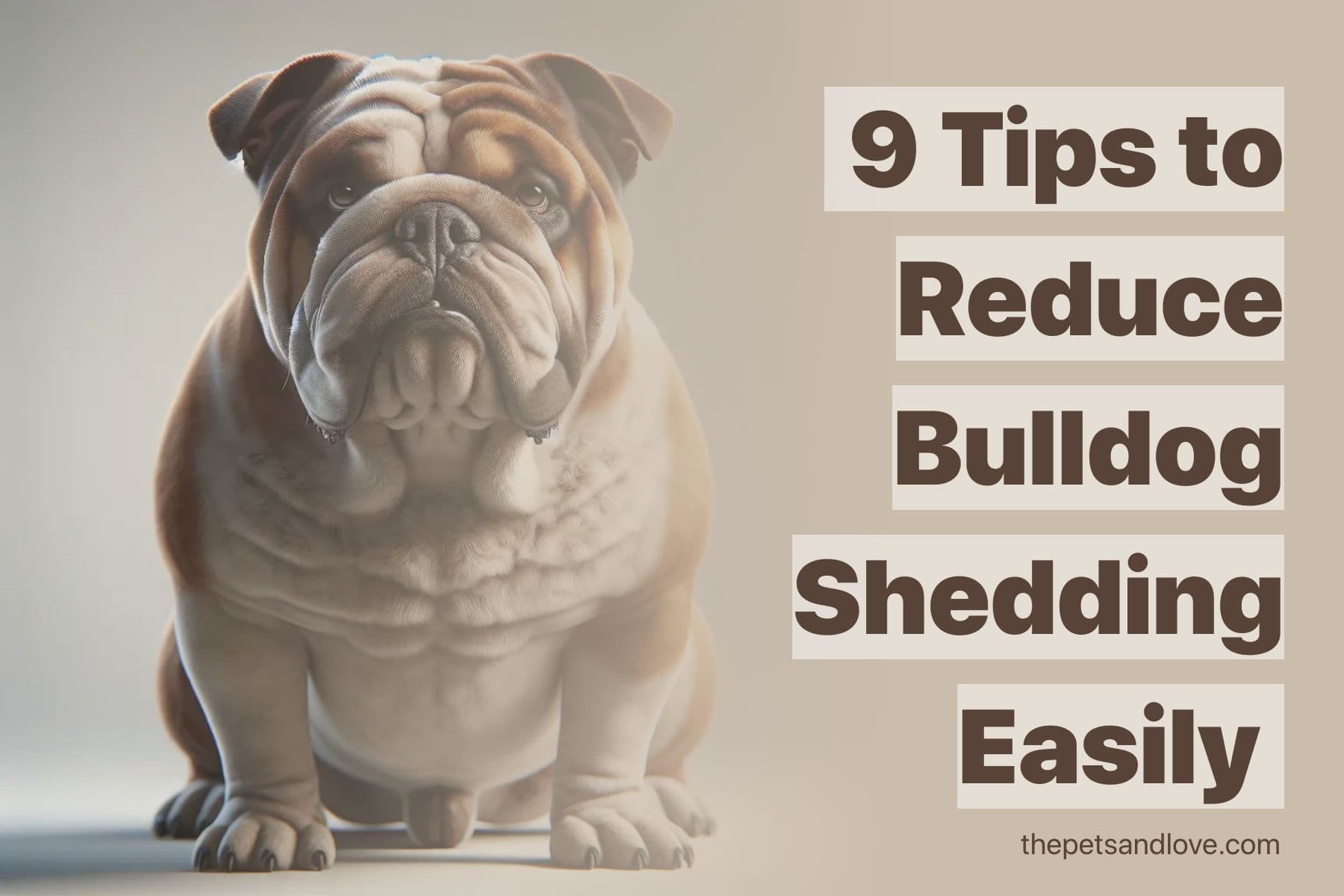Do Bulldogs Shed Hair? Understanding Your Pet's Shedding

Bulldogs and shedding — it’s one of those things that surprises a lot of first-time owners. You’d think their short coats would mean minimal mess, but bulldogs actually shed more than many expect. And when that shedding gets excessive? It’s usually a sign that something’s off.
Let’s talk about what’s normal, what’s not, and what you can actually do to help your bulldog keep a healthier, happier coat.
Why Bulldogs Shed More Than You’d Expect
Bulldogs are considered moderate shedders, but they’re genetically more prone to hair loss than many other breeds. Seasonal shedding — especially during spring and fall — is totally normal. Puppies also tend to shed more than adults as their coats mature.
But if your bulldog is losing hair outside of these times, or the shedding seems excessive, it’s worth taking a closer look.
Common Reasons for Excessive Shedding
Here are some of the more frequent causes we’ve seen in bulldogs:
- Poor Diet: Low-quality food or missing nutrients (especially omega-3 and 6 fatty acids) can lead to dull coats and more shedding.
- Allergies: Bulldogs are sensitive. Food allergies and environmental triggers (like dust or grass) can cause skin reactions and hair loss.
- Skin Issues: Bacterial or fungal infections, mange, or even flea bites can irritate the skin and cause shedding.
- Hormonal Imbalances: Thyroid issues, pregnancy, or hormonal shifts can all lead to noticeable coat changes.
- Stress: Big changes like moving, new pets, or separation anxiety can stress your dog out — and yes, that stress might show up in their fur.
- Medical Conditions: Liver or kidney disease, immune disorders, and even cancer can sometimes present with hair loss as a symptom.
- Pressure Sores: Bulldogs love their naps, but lying too long in one position can cause sores and local hair loss.
If shedding is sudden, patchy, or your dog seems uncomfortable, itchy, or lethargic, it’s time to call the vet.
What’s Worked for Us (and Other Bulldog Owners)
After years of working with bulldogs and chatting with other bulldog parents, here are some real-world tips that have made a difference:
1. Feed for the Coat
A healthy coat starts with what’s in the bowl. Look for:
- High-quality, grain-free kibble
- Omega-rich ingredients (like flaxseed and fish oil)
- Real meat as the first ingredient
If you suspect food allergies, your vet might recommend a limited ingredient or elimination diet — yes, it takes patience, but the results are worth it.
2. Brush Regularly
Even short-haired dogs benefit from daily brushing. Use a soft-bristle brush (bulldog skin is sensitive!) and make it part of your bonding time. It helps remove loose hairs, stimulates the skin, and keeps their coat looking sharp.
3. Bathe Smart
Too many baths can strip natural oils, but not enough can lead to buildup and irritation. Aim for once every 2–4 weeks with a gentle, bulldog-friendly shampoo. Always rinse thoroughly, dry completely (especially those folds!), and avoid human shampoos.
4. Mind the Wrinkles
Those adorable face folds? They’re magnets for moisture and bacteria. Clean them regularly with a damp cloth and dry them well to prevent infections.
5. Watch Out for Fleas
Even one flea bite can trigger an allergic reaction in some bulldogs. Use a reliable flea prevention method year-round, especially if you live in warmer climates.
6. Quality Collar Only
Poorly fitting or rough collars can rub against your dog’s neck, causing hair breakage or loss. Invest in a soft, properly sized collar and check for signs of irritation.
7. Hydration & Exercise
A well-hydrated pup is a healthier pup. Make sure your bulldog always has access to clean water. And while they’re not the most active breed, daily walks or light play can do wonders for circulation and coat health.
8. Keep Stress Low
Bulldogs are sensitive souls. Routine, companionship, and gentle handling go a long way. If they’ve gone through a big life change recently, give them time — and maybe a few extra belly rubs.
When Shedding Is Normal — and When It’s Not
Normal:
- More shedding during spring and fall
- Slightly more hair loss in puppies or pregnant/nursing females
- Some loose hair during brushing or after a bath
Not Normal:
- Bald patches
- Intense itching or redness
- Dull, flaky skin
- Sudden or severe hair loss
If you’re seeing signs that worry you, don’t wait — a vet visit can rule out anything serious and get your bulldog feeling (and looking) better fast.
Final Thoughts
Bulldogs are wonderful companions, but they do need a bit of extra care — especially when it comes to skin and coat health. The good news? With the right routine, a balanced diet, and a little bit of daily attention, you can keep that shedding under control.
And hey, a little fur on your clothes is just part of the bulldog love package. 🐾
Take the Quiz
Is a Bulldog Right for You?
Bulldogs are known for their loose, wrinkled skin and distinctive pushed-in nose. Discover if this loyal and gentle breed is your perfect match by taking our quiz! Answer all questions below to discover your compatibility score and get personalized insights.
Question #1: What is the main reason you want a dog?
Question #2: How active is your lifestyle?
Question #3: How much time can you dedicate to your dog daily?
Question #4: What best describes your home environment?
Question #5: What size dog do you prefer?
Question #6: What personality traits do you want in your dog?
Question #7: How much grooming can you handle?
Question #8: Who else lives with the dog?
Question #9: Is this your first dog?
Please answer all 9 questions to see your results
